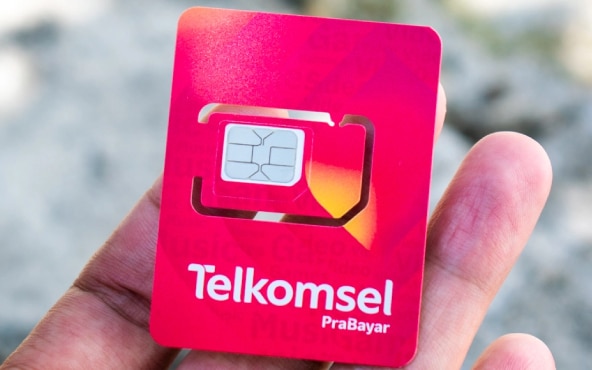Introduction:
Bali, with its unique cultural and linguistic heritage, offers a fascinating experience for travelers willing to immerse themselves in local traditions. While Indonesian is the official language, Balinese (Bahasa Bali) is widely spoken among the locals. Learning a few basic phrases in Balinese can enhance your travel experience, allowing you to connect more deeply with the people and culture. In this guide, we will provide useful Balinese phrases for tourists, along with their English translations, to help you navigate your way through this beautiful island.
Section 1: Basic Greetings and Phrases
Greetings
Understanding basic greetings in Balinese can make your interactions more pleasant and respectful.
- Hello: “Om Swastiastu” (pronounced: om swah-stee-ah-stoo)
- Good Morning: “Rahajeng Semeng” (pronounced: rah-hah-jeng seh-meng)
- Good Afternoon: “Rahajeng Siang” (pronounced: rah-hah-jeng see-ahng)
- Good Evening: “Rahajeng Wengi” (pronounced: rah-hah-jeng wuh-ngi)
- Good Night: “Rahajeng Peteng” (pronounced: rah-hah-jeng peh-teng)
Polite Expressions
Politeness is highly valued in Balinese culture. Here are some phrases to show respect and courtesy.
- Please: “Matur Suksma” (pronounced: mah-toor sook-smah)
- Thank You: “Suksma” (pronounced: sook-smah)
- You’re Welcome: “Mewali” (pronounced: meh-wah-lee)
- Excuse Me/Sorry: “Ampura” (pronounced: ahm-poo-rah)
Section 2: Practical Phrases for Travelers
Asking for Directions
Getting around can be easier with these phrases.
- Where is…?: “Punapi gatra…?” (pronounced: poo-nah-pee gah-trah…?)
- How do I get to…?: “Kija nyeng tiang lakar nyujuh…?” (pronounced: kee-jah nyeng tee-ahng lah-kahr nyoo-joo…?)
- Left: “Kiwan” (pronounced: kee-wahn)
- Right: “Tengen” (pronounced: tuh-ngen)
- Straight Ahead: “Lurus” (pronounced: loo-roos)
Shopping and Dining
These phrases will be useful when shopping or dining out.
- How much is this?: “Nyepi napi rega niki?” (pronounced: nye-pee nah-pee reh-gah nee-kee?)
- Can I have the bill, please?: “Nyelang nota niki?” (pronounced: nye-lahng noh-tah nee-kee?)
- Delicious!: “Sedap!” (pronounced: seh-dahp!)
- I am vegetarian: “Tiang vegetarian” (pronounced: tee-ahng veh-geh-tah-ree-an)
- No Spicy: “Tan pedas” (pronounced: tahn peh-dahs)
Section 3: Social Interactions
Making Friends
Use these phrases to make connections and show friendliness.
- What is your name?: “Nyen adan ragane?” (pronounced: nyen ah-dahn rah-gah-neh?)
- My name is…: “Adan tiang…” (pronounced: ah-dahn tee-ahng…)
- How are you?: “Punapi gatra?” (pronounced: poo-nah-pee gah-trah?)
- I’m fine, thank you: “Tiang becik, suksma” (pronounced: tee-ahng beh-cheek, sook-smah)
Compliments and Expressions
Show appreciation and make your conversations more pleasant.
- Beautiful: “Ayune” (pronounced: ah-yoo-neh)
- Good/Great: “Becik” (pronounced: beh-cheek)
- Interesting: “Menarik” (pronounced: meh-nah-reek)
- I like it: “Tiang demen niki” (pronounced: tee-ahng deh-men nee-kee)
Section 4: Emergency Situations
Seeking Help
In case of emergencies, these phrases will be crucial.
- Help!: “Tulung!” (pronounced: too-loong!)
- I need a doctor: “Tiang perlu dokter” (pronounced: tee-ahng pehr-loo dok-tehr)
- Call the police: “Telpon polisi” (pronounced: tehl-pon poh-lee-see)
- I’m lost: “Tiang kesasar” (pronounced: tee-ahng keh-sah-sar)
Conclusion:
Learning a few basic phrases in Balinese can greatly enhance your travel experience, making your interactions with locals more meaningful and respectful. Whether you’re greeting someone, asking for directions, or expressing gratitude, using the local language shows that you appreciate and respect the culture. As you explore Bali, these phrases will help you connect with the people and immerse yourself more deeply in the island’s unique and vibrant culture. Selamat jalan (safe travels) and enjoy your time in Bali!





